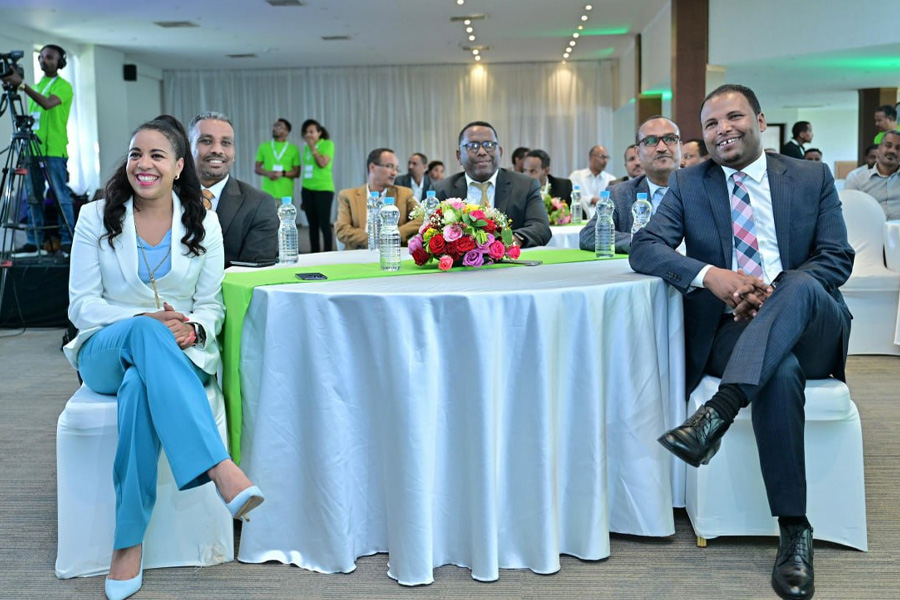
Fortune News | Apr 26,2025
Ethio telecom's ambitious plan to expand infrastructure and improve rural connectivity is facing major setbacks due to funding shortfall and high land lease costs. The state-owned telecom provider needs 1.14 billion dollars to deploy new mobile sites in 1,000 locations, including 496 rural areas, a figure exceeding its annual profits.
CEO Frehiwot Tamiru told Parliament’s Standing Committee for State-owned Enterprises Affairs that the investment required outpaces the company’s yearly earnings. “Despite the financial hurdles, we deployed 2,564 mobile sites in rural areas,” she said.
However, Members of Parliament (MPs) criticised the company for unreliable services, rural inaccessibility, internet outages, and high tariffs. Desalegn Chanie (PhD), MP-NaMA, questioned internet blockages in the Amhara and Oromia regional states, poor mobile data quality, and unclear billing practices. He also criticised recent tariff hikes.
Frehiwot defended the increases, attributing them to currency devaluation driven by macroeconomic reforms. She said that adjustments were made with low-income users in mind.
MPs voiced frustration over the lack of connectivity in remote districts. One MP from South Ethiopia Regional State reported that 19 districts remain without network access, describing the situation as critical.
"Women are dying over there," he said, stating that residents in these areas cannot call for ambulances, putting lives at risk.
An MP stated that half of the 270 districts in the Jimma zone of Oromia remain unconnected, despite repeated requests from local officials.
“We have done what we could to bring the investment to the people,” said Frehiwot, addressing concerns from MPs about unresponsiveness and delays.
Balcha Reba, director general of the Ethiopian Communication Authority (ECA), criticised the rising land lease costs imposed by regional governments, calling them “unfair” and urging federal lawmakers to intervene. “These inflated costs are jeopardising Ethio telecom’s ability to meet connectivity goals,” Balcha warned. “Regional authorities must take swift action to address this issue.”
He hopes that the new Universal Service Fund (USF) regulation, pending approval from the Council of Ministers, will address rural connectivity gaps. The USF proposes a 1.5pc levy on telecom operators' annual gross revenue, with funds managed by the Ministry of Finance (MoF). Contributions from operators, donors, and the government will finance rural expansion projects, with the ECA overseeing project selection and tendering.
“It will be a pay-to-play game for the operators,” Balcha stated, disclosing plans to target 104 of the 1,008 districts with network gaps.
Frehiwot stated that the company’s profit margins are insufficient to fund large-scale projects without external support. "We need investment help," she said. The CEO cited access to land, electricity, and security as ongoing barriers.
Ethio telecom, which monopolised Ethiopia's telecom sector for over a century, holds a 94.5pc market share, serving 80.8 million people. Mobile services account for 78.9 million users, while broadband services reach 43.9 million.
In the past fiscal year, the company’s revenue grew by 21.7pc to 93.7 billion Br, up from 71.5 billion Br in 2023, with a net profit of 21.7 billion Br. Its customer base expanded by 8.9pc, covering 85.4pc of Ethiopia geographically. Telebirr, Ethio telecom's mobile money service, has 51.92 million users, handling 3.38 trillion Br in transactions, 73pc of which occurred last year.
Ethio telecom operates 8,530 mobile sites, with 47pc powered by generators, 21,827km of backbone fiber, and 4,744 fixed access networks. Despite this progress, the company faces problems, including foreign currency shortages, equipment theft and vandalism, and conflicts.
Ethiopia lags behind its neighbors in internet connectivity, with nearly 90 million people unconnected, compared to 33 million in Kenya and 27 million in Sudan. Kenya and Sudan have internet penetration rates of 29.5pc and 28.4pc, respectively.
Digital expert Endashaw Tesfaye from the United Nations Capital Development Fund (UNCDF) argues that Ethiopia needs more telecom operators to meet the rising demand. He suggests Safaricom’s increased involvement could help bridge connectivity gaps. Endashaw says that expansions into underserved communities require incentives.
"The government should introduce incentive packages for new telecom operators," he said.
Endashaw advised Ethio telecom to assess risks and reduce debt burdens to attract investors as it prepares to sell shares to the public. Acknowledging Ethio telecom’s 65pc digital coverage, he says there is a gap between coverage and service quality. He says the service is plagued by persistent system outages and inefficiencies.
He recommends building resilient infrastructure and emergency plans to create a sustainable digital ecosystem. Endashaw says true success requires not only expanding services but ensuring efficiency, quality, and inclusivity.
He stated that regulators should strengthen their capacity, develop strategic investment plans, and pursue gradual improvements to enhance Ethiopia’s telecommunications landscape.
PUBLISHED ON
Jan 05,2025 [ VOL
25 , NO
1288]

Fortune News | Apr 26,2025

Radar | Sep 10,2022

Radar | May 13,2023

Exclusive Interviews | Dec 22,2024

Fortune News | May 15,2021

Radar | May 11,2025

Fortune News | Dec 04,2022

Radar | Jan 19,2025

Radar | Mar 05,2022

Radar | May 28,2022

Dec 22 , 2024 . By TIZITA SHEWAFERAW
Charged with transforming colossal state-owned enterprises into modern and competitiv...

Aug 18 , 2024 . By AKSAH ITALO
Although predictable Yonas Zerihun's job in the ride-hailing service is not immune to...

Jul 28 , 2024 . By TIZITA SHEWAFERAW
Unhabitual, perhaps too many, Samuel Gebreyohannes, 38, used to occasionally enjoy a couple of beers at breakfast. However, he recently swit...

Jul 13 , 2024 . By AKSAH ITALO
Investors who rely on tractors, trucks, and field vehicles for commuting, transporting commodities, and f...

Oct 25 , 2025
The regulatory machinery is on overdrive. In only two years, no fewer than 35 new pro...

Oct 18 , 2025
The political establishment, notably the ruling party and its top brass, has become p...

Oct 11 , 2025
Ladislas Farago, a roving Associated Press (AP) correspondent, arrived in Ethiopia in...

Oct 4 , 2025
Eyob Tekalegn (PhD) had been in the Governor's chair for only weeks when, on Septembe...